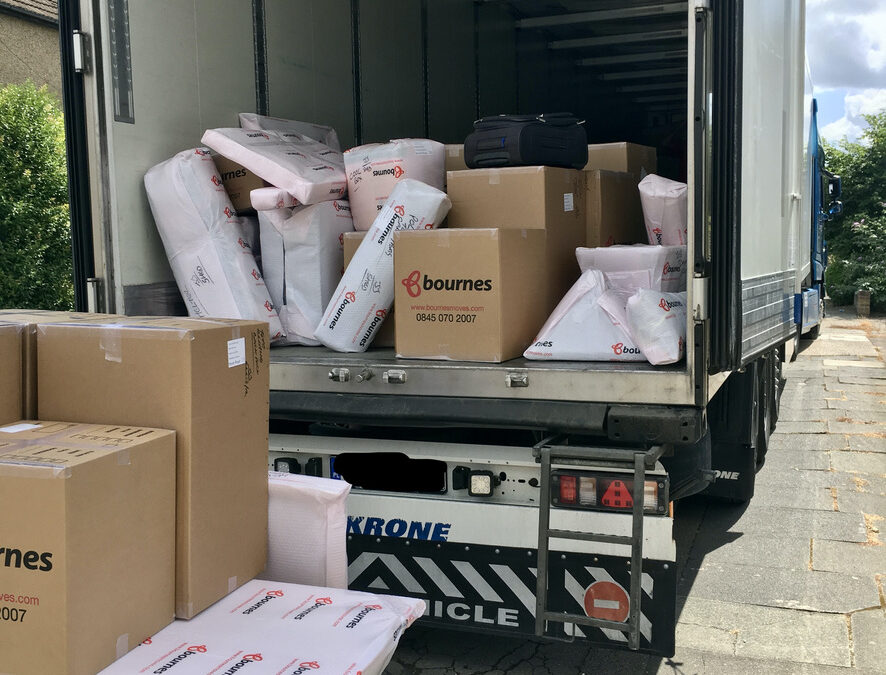On the brink of moving? Preparing to leave a rental? I found it all very different here to say the least. And now that a few months have passed, I am psychologically ready to speak of my experience, although please bear in mind that the following article is based on my own personal situation, and any resemblance to real landlords or regies (rental managing agents), living or dead, is purely coincidental.
There is something that happens in Switzerland, something that will at some point happen most likely to all of us, but this thing is not much talked about until it’s happening to you. By which time it’s usually too late.
Yes. I am talking about ‘leaving a rental property’.
Anyone who has been through this, my apologies for triggering you with the mention of it. Anyone who hasn’t yet experienced this phenomenon, I would advise you to read on …. and perhaps sit down.
Let’s start by going back to the beginning……..
Finding a rental property in or around Geneva
This in itself is no mean feat.
Flashback to 2019 when I naively thought that, moving from London, I might know a little about expensive rents, competitive markets, and houses or apartments harder to lock down than the UK government during a pandemic. Geneva swiftly taught me that I was a mere novice in all of these regards.
Hardly any properties were online to begin with, and those that were online were illustrated by little more than a photograph of the right-hand cornerof a 1970s style fireplace, and an eye-watering price tag.
In our excitement for the move, we battled ahead and made this work. By which I mean we compromised heavily, argued, cried a lot (me), went over budget and planned our new life. Yay.
*(at this point, an inventory type form was completed, despite us not being in the country and not privy to this – detailing the exact, and I mean exact, condition of the property. All quite normal you think. Remember this part – it becomes important later on).
Roll forward a few years.
We decide to leave the rental property, we’ve bought a house (which is a WHOLE other blog post, do not even start me …).
Now the fun really starts.
Let the escape-room-style game of strategy begin.
How so?
- Firstly, there is one specific month in which you can hand in your notice with no penalty. Just one, usually 3 months before the end of your contract. Notice must be given by way of a specific form, either sent to your regie (management agent) via signed-for post, or hand-delivered to their offices. It must be signed by both parties named on the contract.
- Should you wish to move out at any time other than this one month, because you know, you can’t quite time when a new property will come onto the market or be available from, then you will be responsible for finding the new tenants to take over your existing contract.
- By being responsible for – you will advertise your landlord’s property to potential tenants, you will show them round, you will detail to them the process to follow, you will supply them with the form that is required to be completed (because until a full “dossier” is handed in, then they haven’t made an official offer).
- With the shortage of properties and high demand, you might think “doesn’t sound so bad” – but wait! A catch. Your landlord can decide whether to take the tenant on or not after reviewing their dossier, as is his or her right, of course.
- Ball now back in your court, and this is where it’s important to note that if you are able to prove that you have provided the landlord with one or more (usually 3) dossiers from potential tenants who are able to afford the rent (oh yes, they go there) then you have done what is needed. The landlord has 30 days to accept them, or not. But after this you are no longer responsible for the ongoing rent.
- Why might a landlord not take a potential tenant, you wonder? If you are leaving part way through a contract, then the new tenant will be taking over that contract – and rules seem to stipulate that it must be the exact same, in length, in termination policy, and most importantly in rental amount. If you are a landlord who would like to perhaps increase the rent, then this will not benefit you and so maybe it’s better for a landlord to cease the contract and start afresh. That’s his or her choice. However, so long as you have provided the mandated ‘one or more dossiers’ from financially viable tenants willing to take over your contract, then you have fulfilled your obligation.
The above and various conversation surrounding the above can, and often will feel quite personally upsetting. You’re new, not fully clear on the rules and can feel a little backed into a potentially expensive corner. One thing I have learned is that it is not personal, it is simply how things are done here, it’s just different. There is (usually) no ill intent. But it can be a confusing and upsetting time, worrying that you may have to continue to pay your old rent alongside paying for your new rent or mortgage.
Keep a clear head, know your rights, and push on through it.
Next stage, your landlord agrees on a replacement tenant. You’re free, hurrah!
But wait, not quite. Not before a little sprinkle of salt on that open wound.
Condition of the property on leaving
You must leave your rental property “as new”. ‘Wear and tear’ as we may know it is not really a thing here, at least not until around 6 years of living somewhere, or in exceptional circumstances.
Homes must be left spotless, repainted, anything worn or cracked must be replaced, any
small holes in walls filled (including for pictures, etc.) – STICK ON LED LIGHTS ARE THE
DEVIL’S WORK HERE and the property must have had an end-of-tenancy deep clean, at your expense. Although another (very usual in Switzerland apparently) way of doing things is to claim this work via your home insurance, I have learned, so do bear that in mind. The chimney will need to be cleaned, by the commune chimney sweep (every commune has one, no I am not joking) never mind if it’s been actually used or not – ours hadn’t – and the oven will need to look like it’s never had a mere whiff of a schnitzel let alone anything cooked in it.
A few tips at this stage that I picked up from friends / those in recovery and able to speak of this:
- If you have a regie (management agent), it’s worth asking them who they would recommend for the end-of-tenancy clean. It will likely be more expensive than other quotes, however it will be easier to go back to, should the clean be deemed ‘not up to standard’ at the final inspection, as ours was. I simply passed it back to them to argue it out (in French).
- The above said, most cleaning companies should offer a guarantee of some sorts that their work will pass the inspection, and should return free of charge if it doesn’t. It’s worth checking the cleaning quote small print for this and casting a very keen eye over
EXACTLY what is included (for example the insides of our balcony glass was cleaned, the outside wasn’t). - If the cleaners happen to break or lose something mid-clean, you could be liable, unless you have photographic proof of how you left the property. Freezer drawers seem to be a particularly common breakage (is someone in cahoots with Fust for
replacements?). - All lights and sockets and blinds will be checked, if not in working condition, then you need to make them good. It’s advisable to get this all done in advance of the inspections as if not done quickly enough after the inspection then the regie will appoint their own people and it could get expensive, for example, there was a small crack found in a shower head at ours:
Ikea 14chf
Regie 150chf
- Mr. Muscle white ‘miracle’ sponges – stock up!! You will use these on every surface imaginable. The ones with the blue stripe down the middle don’t disintegrate as fast (how has my life’s come down to this knowledge …. ??).
Pre-Move Inspections – what to expect:
There are usually two.
The first will be when someone comes round, takes a good look around, and gives you a list of what should be fixed and/or made good. You and the inspector will both sign this list at the end of the visit, and by doing so you are agreeing to have everything done by the second/ final inspection.
The final inspection for us was a 2.5-hour process whereby two different people came back and checked off what was on the first inspector’s list as well as referring back to the “green form” **
** back to that inventory supplied when you first happily secured your property. There’s a green form apparently, which determines your fate as it specifies exactly how the property was let to you, and thus exactly how it must be returned. If anything is amiss, broken, not working, SPEAK THEN or forever hold your peace (and your miracle sponge).
If you’re wondering what level of detail they get down to, our final visit culminated in one of the ladies handing me some fluff and an earring back from our tumble drier filter. As I had emptied (and bleached, of course) all the bins, and being British, I stood for the rest of the visit holding this debris in my hand and said “merci”.
Then I took a photo of my gleaming oven and grill and sent it straight to my mother-in-law (feeling a similar pride to when I presented her with her two grand-daughters) before handing the keys over to our new tenants, who had stood watching the entire scene unfoldwith equal confusion and amusement.
Silver Linings
If the above system works as it should – and let’s face it, it’s Switzerland so it really ought to work as it should – then as a new tenant you will arrive straight into a sparkling and spotless new property.
Extra Support needed? ASLOCA exists to help you!
ASLOCA is a private and independent association that aims to defend tenants throughout Switzerland, with sections in Geneva and Vaud. Their website is in French but can be easily translated and contains answers to FAQs and even has a rent calculator (should you believe that an increase is unfairly high for example).
Whilst some employees of ASLOCA will be able to assist you in English, this isn’t the case for all. So it may be easiest to email ahead to ask for help if English is essential. Plus, if you become a member of ASLOCA you are also able to meet to discuss your specific, personal circumstances.
** The information and advice included in this blog is purely personal and based on my own experience and specific situation, and does not infer any legal or regulatory rights or advice.

